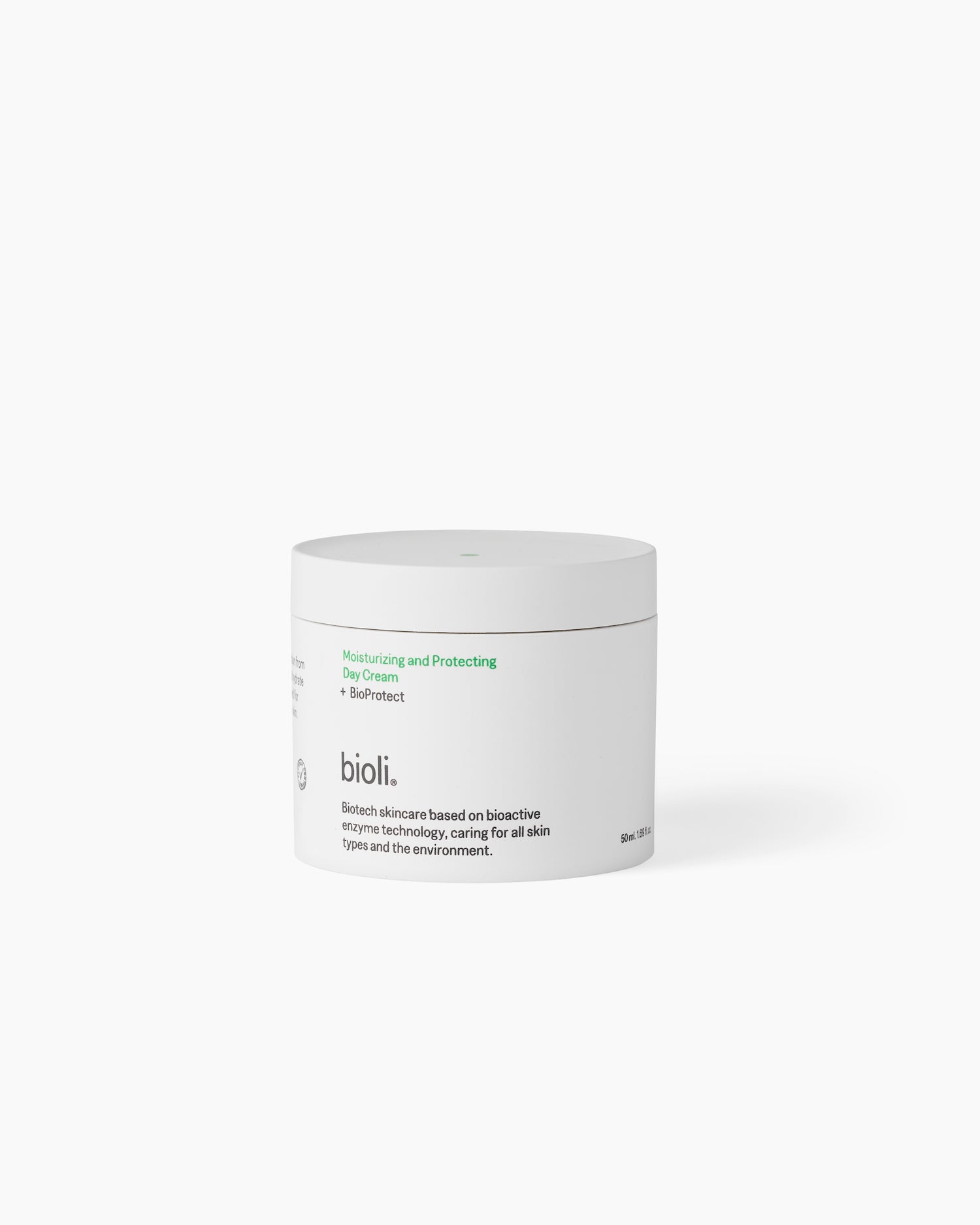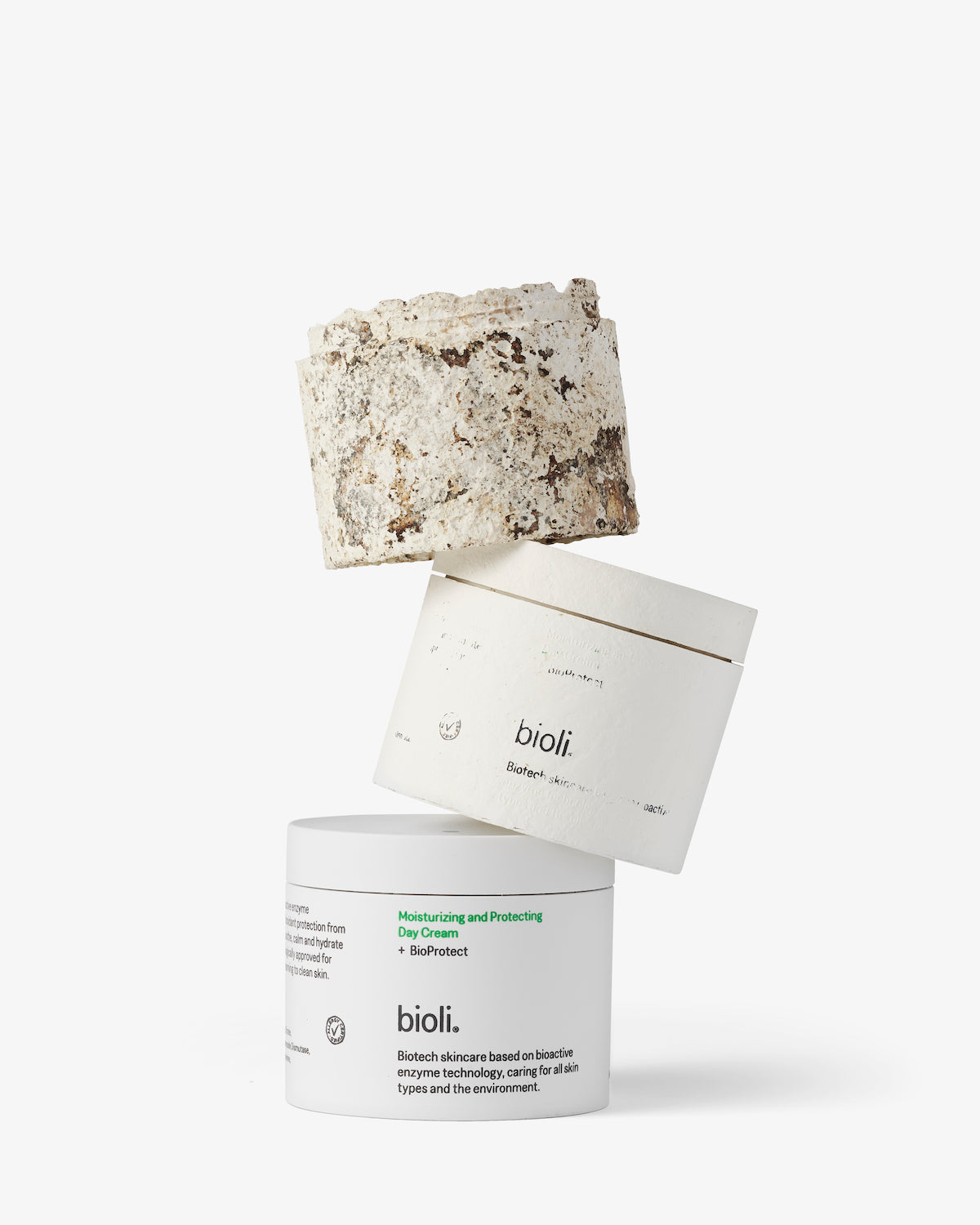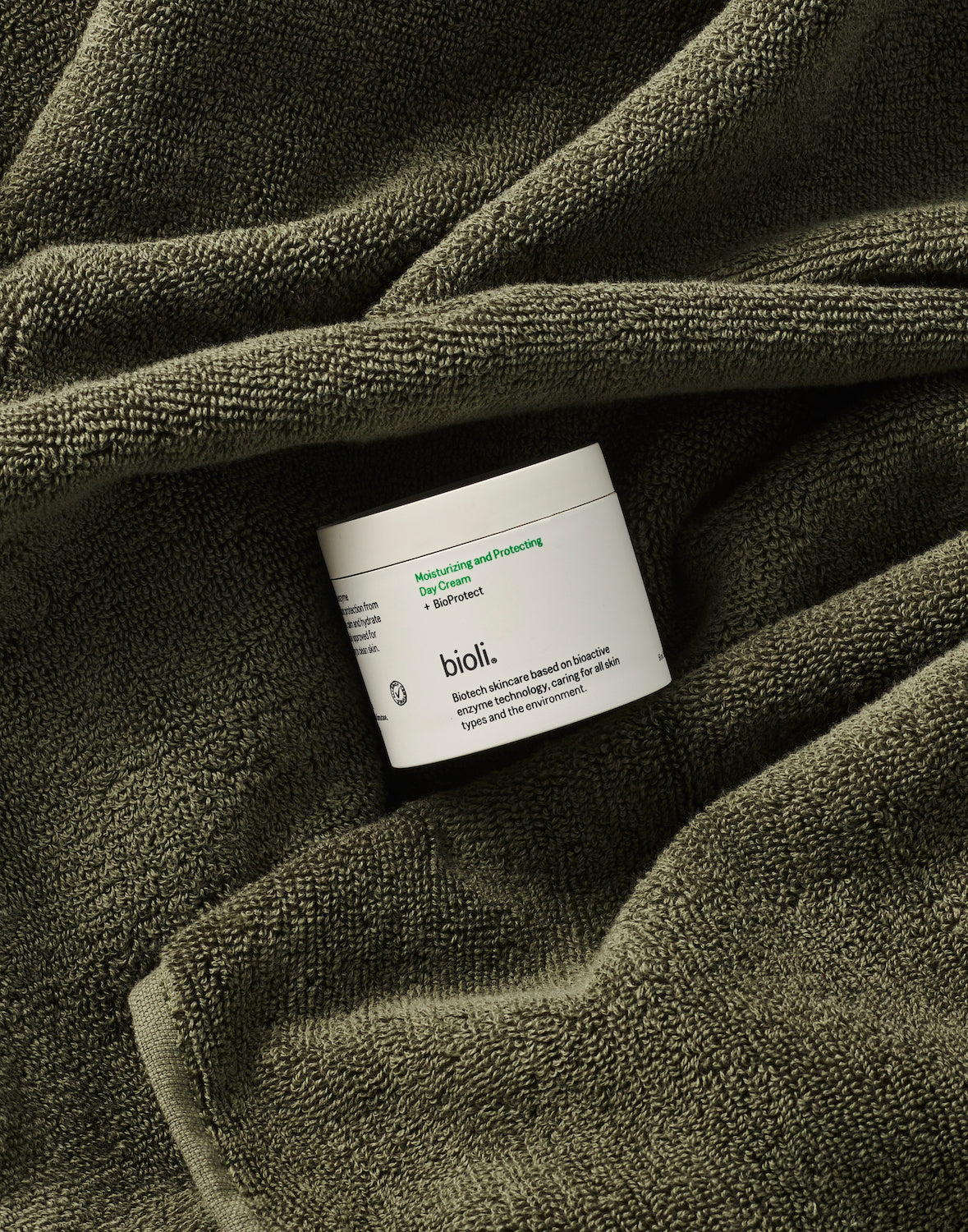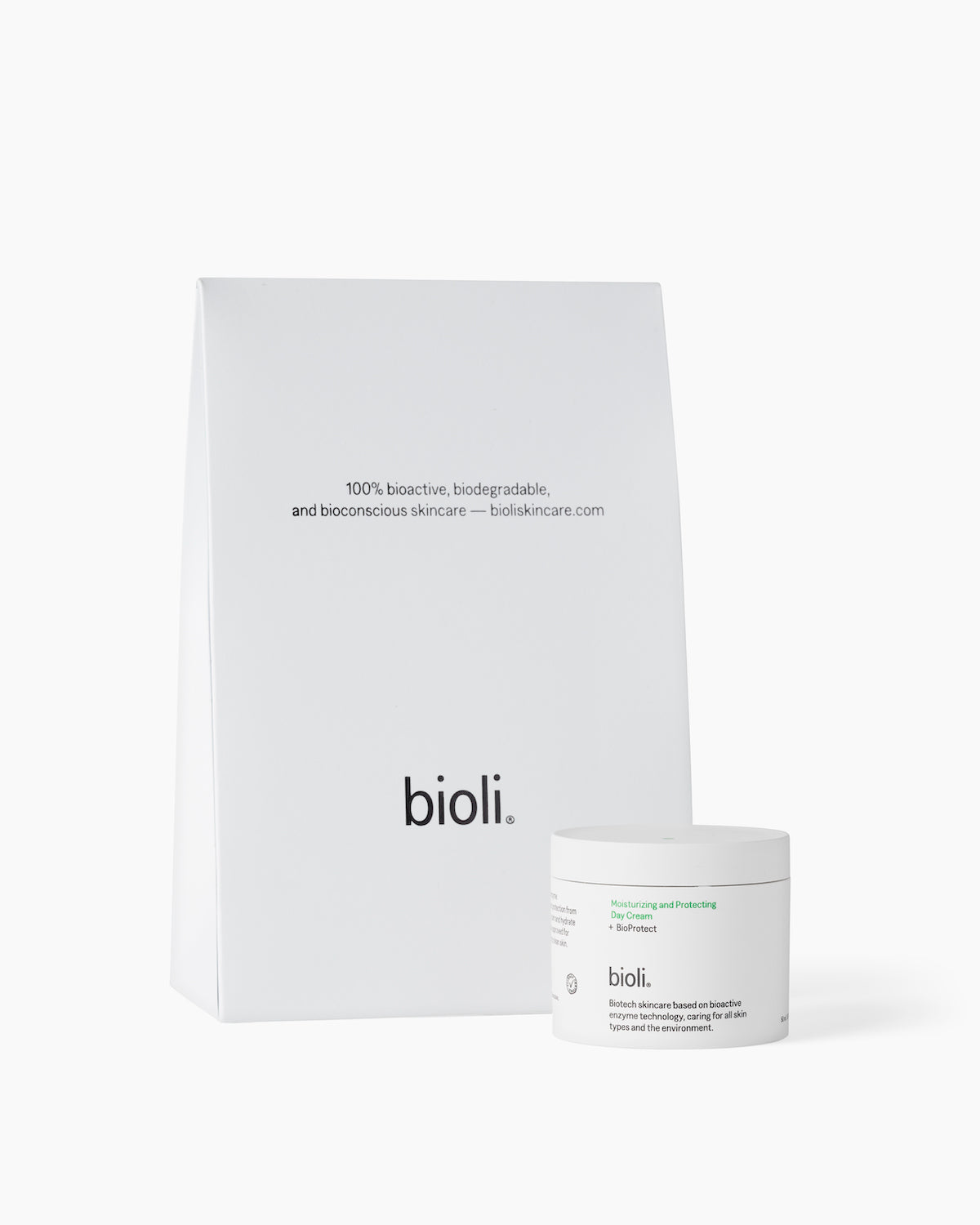What are enzymes?
First, what are enzymes? Enzymes are specialized proteins produced by all living organisms that act as biological catalysts. They play a critical role in accelerating the chemical reactions essential for life. Due to their remarkable efficiency and versatility, enzymes are widely used across many industries. In food production, they help improve texture and flavor; in pharmaceuticals, they assist in drug synthesis; and in cleaning products, they break down stubborn stains and residues. This ability to work with efficiency and versatility makes enzymes indispensable tools in both nature and technology.
8 benefits with enzymes in skincare
- Inspired by nature: Without enzymes, many of the biochemical reactions that sustain life would not be possible. Lab-made enzymes mimic these natural processes without depleting natural resources - source
- Mild yet effective: Due to their targeted functionality, lab-made enzymes are gentle on the skin while remaining highly efficient. This makes them particularly suitable for people with sensitive skin source
- Tailored effects: With their targeted approach, enzymes in skincare can be customized to address specific skin concerns, offering tailored solutions for both various skin types and conditions - source
- Potent antioxidant properties: Some specific enzymes have antioxidant properties that can help protect the skin against free radicals - source
- Gentle exfoliation: Enzymes exfoliate the skin more gently than many traditional exfoliants, often resulting in fewer side effects such as irritation or micro-tears. Potential side effects are limited, as enzymes act on the superficial layers of the skin, removing death cells - source
- Enhance the hydration and absorption pathway: By gently exfoliating dead skin cells, enzymes help improve the skin´s ability to retain moisture and allow subsequent ingredients to penetrate more effectively - source
- Suitable for all skin types: Enzymes are generally suitable for many skin types–including sensitive skin, acne-prone and mature skin - source
- Environmentally friendly: Enzymes are highly sustainable due to their efficient production processes and minimal environmental impact. Compared to traditional ingredients, they require significantly fewer resources* compared to:
- Vitamin C (15%, for antioxidant protection) – Enzymes (at 1%) require 30% less land use, emit 80% lower CO₂ emissions, and consume 80% less fossil energy across 17 out of 18 assessed impact categories.
- AHA (30%)/BHA(2%) (for cleansing and exfoliation) – Enzymes (at 1%) reduce land use by 60%, CO₂ emissions by 90%, and fossil energy consumption by 90% across all 18 impact categories.
- Plant-sourced enzymes – Enzymes use 50% less land use, emit 30% less CO₂ emissions, and consume 10% less fossil energy across all 18 impact categories. Additionally, they are biodegradable, leave no harmful residues, and do not compete with food sources for agricultural land.
Enzymes bring the perfect balance of efficacy, safety, and sustainability in skincare. Their targeted action and eco-friendly footprint, make them a compelling alternative to conventional ingredients like Vitamin C and AHA/BHAs. As beauty trends shift toward science-backed, sustainable solutions, enzymes are emerging as a promising true skin-loving innovation. Ready to make the switch?
*Bioli data obtained in July 2024 through collaborative research using the Open LCA assessment tool (Method: ReCiPe2016).











